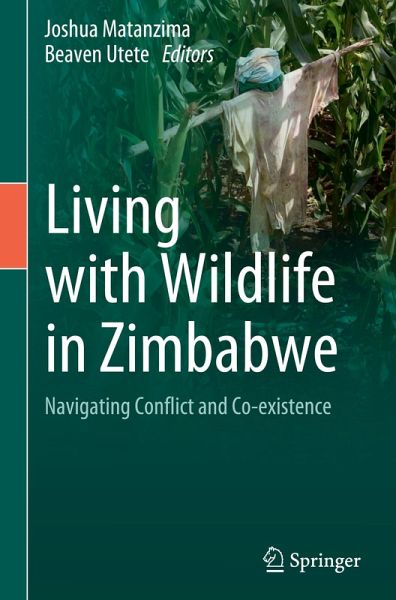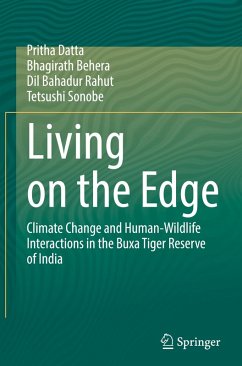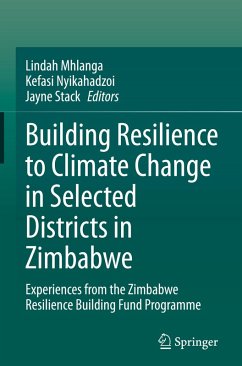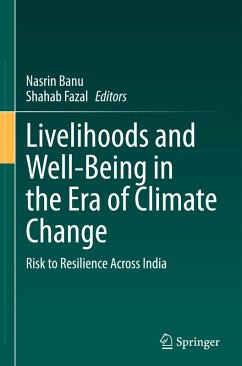
Living with Wildlife in Zimbabwe
Navigating Conflict and Co-existence
Herausgegeben: Matanzima, Joshua; Utete, Beaven

PAYBACK Punkte
57 °P sammeln!
This book provides a critical analysis of the interactions of humans and wildlife in Zimbabwe. It does not only document conflicts, but it also considers opportunities for co-existence that can result in the successful conservation practices within protected areas. The book offers empirically rich case studies from across different areas of Zimbabwe both urban and rural where people interact with animals both negatively and positively. Chapters in the book discuss these interactions through the different lens including the contemporary politico-economic crises prevalent in Zimbabwe, the failur...
This book provides a critical analysis of the interactions of humans and wildlife in Zimbabwe. It does not only document conflicts, but it also considers opportunities for co-existence that can result in the successful conservation practices within protected areas. The book offers empirically rich case studies from across different areas of Zimbabwe both urban and rural where people interact with animals both negatively and positively. Chapters in the book discuss these interactions through the different lens including the contemporary politico-economic crises prevalent in Zimbabwe, the failures and successes of the CAMPFIRE programme, and gender dynamics of conflicts. The book provides an update into the human-wildlife interactions situation in Zimbabwe. Data presented has policy implications within Zimbabwe and beyond. It contributes to different categories policy and mitigation measures including HWC mitigation strategies as well as conservation policy.
Beaven Uteteand Joshua Matanzima have brought together a fascinating collection of papers on human-wildlife conflict and coexistence in Zimbabwe. The authors highlight the views, values and needs of people living with wildlife. Voices that are still too often ignored in conservation practice, policy and science. This is essential reading for anyone interested in decolonizing conservation and the future of wildlife in Africa. Professor Jan van der Ploeg, Professor Inclusive Conservation, Van Hall Larenstein University of Applied Sciences, The Netherlands
This is a valuable collection from a country we should hear much more from in the field of human-wildlife interactions studies. In addition to providing interesting case studies and data from Zimbabwe to inform and inspire international conservation efforts, I hope it will galvanize national and local efforts to tackle the complex challenges ahead for biodiversity conservation in Zimbabwe. Professor Simon Pooley, IUCN SSC Specialist Group on Human-Wildlife Conflict and Coexistence
Beaven Uteteand Joshua Matanzima have brought together a fascinating collection of papers on human-wildlife conflict and coexistence in Zimbabwe. The authors highlight the views, values and needs of people living with wildlife. Voices that are still too often ignored in conservation practice, policy and science. This is essential reading for anyone interested in decolonizing conservation and the future of wildlife in Africa. Professor Jan van der Ploeg, Professor Inclusive Conservation, Van Hall Larenstein University of Applied Sciences, The Netherlands
This is a valuable collection from a country we should hear much more from in the field of human-wildlife interactions studies. In addition to providing interesting case studies and data from Zimbabwe to inform and inspire international conservation efforts, I hope it will galvanize national and local efforts to tackle the complex challenges ahead for biodiversity conservation in Zimbabwe. Professor Simon Pooley, IUCN SSC Specialist Group on Human-Wildlife Conflict and Coexistence












